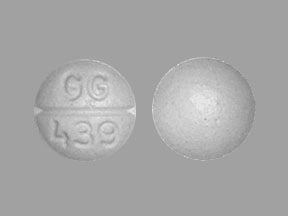
Pindolol Coupons & Savings Card – Discount Prices from $72.87
Pindolol is a medication primarily used to manage high blood pressure, which can reduce the risk of strokes, heart attacks, and kidney issues. As a non-selective beta-blocker, pindolol functions by blocking certain natural substances like epinephrine, which lowers heart rate and decreases blood pressure. This action helps to ease the workload on the heart. Typically taken orally twice a day, pindolol is not commonly prescribed today due to the availability of more effective blood pressure medications with fewer side effects. Always consult with a healthcare professional before starting any new medication.
Our coupons are free to use. Before paying, show the pharmacist your Pindolol savings card to get your free discount. Use our filters below to edit the prescription box to match your needs. The Pindolol prices will update based on your prescription needs. Above our Pindolol coupons, you can change your location to see pharmacy prices and costs in other areas. We're here to help you buy Pindolol at the lowest price with our prescription discount card.
My prescription
Edit
10MG, Pindolol (180 Tablets)
Select pharmacy

CVS
$72.87
COUPON PRICE
Walgreens
$110.87
COUPON PRICE
Albertsons
$155.49
COUPON PRICE
Walmart
$200.41
COUPON PRICEPindolol savings card
Show this card to your pharmacist
CVS
$72.87
BIN
ID
PCN
GRP
019876
LH87E352BD
CHIPPO
LHX
Powered by
Pindolol is a medication primarily used to manage high blood pressure, which can reduce the risk of strokes, heart attacks, and kidney issues. As a non-selective beta-blocker, pindolol functions by blocking certain natural substances like epinephrine, which lowers heart rate and decreases blood pressure. This action helps to ease the workload on the heart. Typically taken orally twice a day, pindolol is not commonly prescribed today due to the availability of more effective blood pressure medications with fewer side effects. Always consult with a healthcare professional before starting any new medication.
Our coupons are free to use. Before paying, show the pharmacist your Pindolol savings card to get your free discount. Use our filters below to edit the prescription box to match your needs. The Pindolol prices will update based on your prescription needs. Above our Pindolol coupons, you can change your location to see pharmacy prices and costs in other areas. We're here to help you buy Pindolol at the lowest price with our prescription discount card.
Related beta blockers prescriptions
More prescriptions for hypertension
coupons from$226.89Save 72%
coupons from$222.10Save 92%
coupons from$7.02Save 91%
coupons from$18.60Save 74%
coupons from$66.15Save 38%
coupons from$15.56Save 75%
coupons from$20.94Save 91%
coupons from$54.77Save 48%
Related beta blockers prescriptions
Istalol Save 86%coupons from $35.25
Betimol Save 66%coupons from $190.49
Labetalol Save 61%coupons from $9.34
Bisoprolol Save 55%coupons from $30.01
Betaxolol Save 85%coupons from $46.29
Carteolol Save 80%coupons from $14.02
Tenormin Save 53%coupons from $17.11
Timoptic Save 37%coupons from $20.13
More prescriptions for hypertension
Coreg Cr Save 72%coupons from $226.89
Nicardipine Save 92%coupons from $222.10
Quinapril Save 91%coupons from $7.02
Spironolactone Save 74%coupons from $18.60
Acebutolol Save 38%coupons from $66.15
Benazepril Save 75%coupons from $15.56
Enalapril Save 91%coupons from $20.94
Amiloride-hydrochlorothiazide Save 48%coupons from $54.77
Pindolol dosage forms
Use our Pindolol 5MG coupon with prices from $31.26 for 100 Tablets. You can also use our Pindolol 5MG coupon with prices from $50.26 for 180 Tablets. We have a Pindolol 10MG coupon with prices from $72.87 for 180 Tablets. You can use our Pindolol 10MG coupon with prices from $52.17 for 100 Tablets.
Dosage Quantity Price from Per unit 5MG 100 Tablets $31.26 $0.31 5MG 180 Tablets $50.26 $0.28 10MG 180 Tablets $72.87 $0.41 10MG 100 Tablets $52.17 $0.52
| Dosage | Quantity | Price from | Per unit |
|---|---|---|---|
| 5MG | 100 Tablets | $31.26 | $0.31 |
| 5MG | 180 Tablets | $50.26 | $0.28 |
| 10MG | 180 Tablets | $72.87 | $0.41 |
| 10MG | 100 Tablets | $52.17 | $0.52 |
